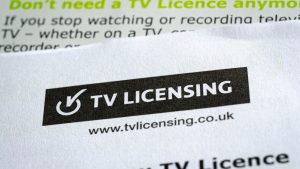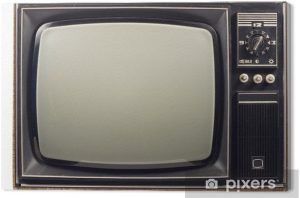Who is Responsible for TV Licence: Landlord or Tenant? 📺
The question of who is responsible for the TV Licence, the landlord or the tenant, can sometimes be a source of confusion. This blog post aims to shed light on this topic, providing clarity on the respective roles and responsibilities of both parties. Understanding this can help create a harmonious tenant-landlord relationship and ensure compliance with legal requirements.

Responsibility for the TV Licence
In the UK, every household that watches or records live television broadcasts, or streams content through the BBC iPlayer, must have a TV Licence. The responsibility for obtaining and maintaining a valid TV Licence typically falls on the tenant, the person who is using the TV services within the rented property.
However, it’s important to note that the responsibility for providing a TV Licence often lies with the tenant, but there can be exceptions.
- Tenant Responsibility 🏠
The tenant is usually responsible for acquiring and paying for a TV Licence if they meet the criteria for needing one. This means that if you are renting a property and you watch live TV or use the BBC iPlayer, you must purchase a TV Licence.
The cost of the TV Licence varies and is set by the government. It’s an annual fee, and you can pay it monthly or all at once. You can easily purchase or renew your TV Licence online, making it a convenient process.
- Landlord Responsibility 🏢
Landlords, on the other hand, are generally not responsible for obtaining TV Licences for their tenants. The responsibility for ensuring that the TV Licence is in place and up to date usually rests with the tenant.
However, there can be exceptions to this general rule. In some cases, landlords may provide a TV and TV Licence as part of the rental agreement. If this is the case, it’s crucial to have clear and detailed terms in the tenancy agreement that specify who is responsible for the TV Licence.
Common Scenarios
To better understand the responsibilities in different scenarios, let’s consider a few common situations:
-
Furnished Accommodation 🛋️
In furnished accommodations, landlords may provide a TV and TV Licence as part of the rental package. In such cases, it is the landlord’s responsibility to ensure that the TV Licence is in place and renewed as needed.
-
Unfurnished Accommodation 🏢
In unfurnished properties, tenants are generally expected to arrange and pay for their TV Licences themselves. Landlords are not typically responsible in such cases.
-
Shared Accommodation 🏡
In shared accommodations, it is essential to clearly outline TV Licence responsibilities in the tenancy agreement. In some cases, tenants may jointly contribute to a TV Licence if they share a common area with a TV.

Legal Consequences
Failure to have a valid TV Licence when required can result in legal consequences, including fines and penalties. It’s crucial for both landlords and tenants to ensure compliance with TV Licensing laws.
In most cases, tenants are responsible for obtaining and maintaining a valid TV Licence. However, it’s essential for landlords and tenants to communicate clearly and agree on responsibilities, especially when it comes to furnished accommodations or shared spaces with a TV.
To avoid misunderstandings and potential legal issues, it’s advisable for both landlords and tenants to have a well-drafted tenancy agreement that clearly specifies TV Licence responsibilities. By working together and ensuring compliance, both parties can enjoy a hassle-free and legal television viewing experience in the UK.
Remember that the information provided in this blog post is for general guidance, and specific circumstances may vary. To ensure compliance with the law, it is always recommended to seek professional advice or refer to official TV Licensing resources.
Whether you’re a landlord or a tenant, understanding and adhering to the TV Licensing requirements is a crucial aspect of maintaining a smooth and legal tenancy arrangement.